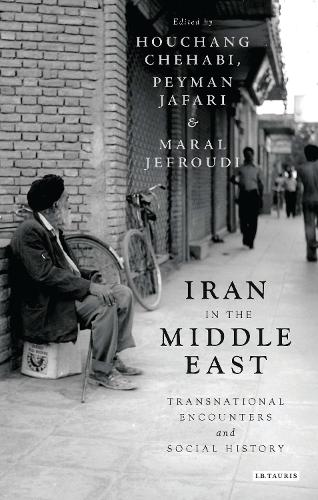
Iran in the Middle East: Transnational Encounters and Social History
Publishing Details
Iran in the Middle East: Transnational Encounters and Social History
By (Author) Houchang Chehabi
Edited by Peyman Jafari
Edited by Maral Jefroudi
Bloomsbury Publishing PLC
I.B. Tauris
30th March 2018
United Kingdom
Classifications
General
Non Fiction
Revolutions, uprisings, rebellions
Constitution: government and the state
Diplomacy
Middle Eastern history
Social groups: religious groups and communities
Social and cultural history
International relations
Physical Properties
296
Width 138mm, Height 212mm, Spine 26mm
380g
Description
Iran's interaction with its neighbours is a topic of wide interest. But while many historical studies of the country concentrate purely on political events and high-profile actors, this book takes the opposite approach: writing history from below, it instead focuses on the role of everyday lives. Modern Iranian historiography has been dominated by ideas of nationalism, modernization, religion, autocracy, revolution and war. Iran in the Middle East adds new dimensions to the study of four crucial areas of Iranian history: the events and impact of the Constitutional Revolution, Iran's transnational connections, the social history of Iran and developments in historiography.
Author Bio
H.E. Chehabi is Professor of International Relations and History at the Frederick S. Pardee School of Global Studies, Boston University. He has also taught at Harvard University and has held visiting appointments at UCLA and the University of St. Andrews. He is the author of Iranian Politics and Religious Modernism, editor of Distant Relations: Iran and Lebanon in the Last 500 Years, and co-editor, with Vanessa Martin, of Iran's Constitutional Revolution, all I.B.Tauris. Peyman Jafari is a PhD researcher at the International Institute for Social History, Amsterdam and Leiden University. Maral Jefroudi is a PhD researcher at the International Institute for Social History, Amsterdam and Leiden University
